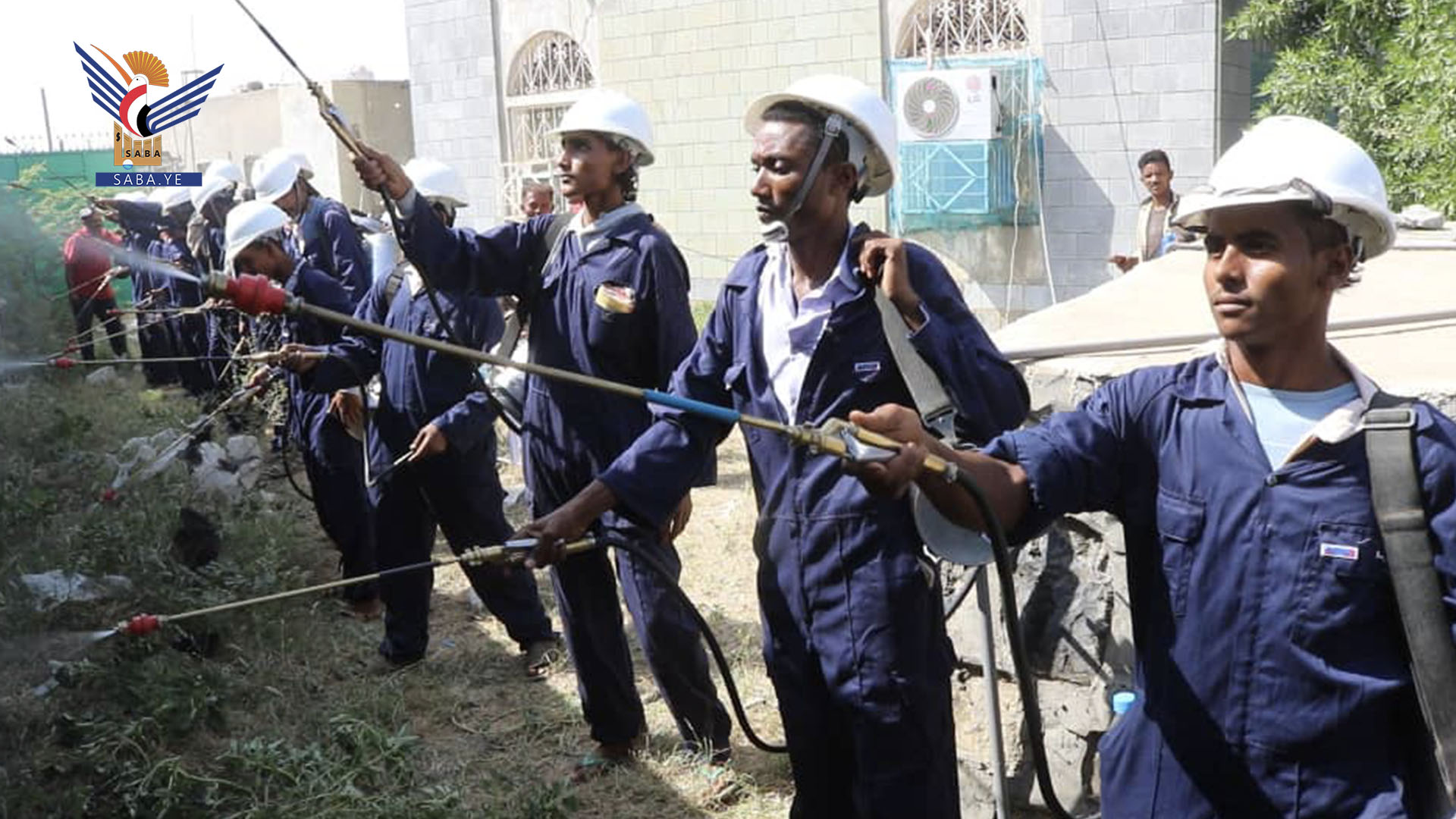Sana'a - Saba:
Primary health care is the first line of defense in the health system and represents the front line in combating diseases , epidemics and limiting their spread.
Primary health care has acquired a social character based on community initiatives and volunteers, as it played a major role in limiting the spread of diseases and epidemics during the past years, which the aggression contributed to the spread of more deadly diseases.
As if the collapse of the health sector system was not enough, the aggression continued its crimes by preventing the entry of diagnostic equipment, vital medicines, laboratory reagents and vaccines, in addition to spare parts for sewage treatment plants, which led to the outbreak of many diseases and epidemics.
Despite this, the President of the Supreme Political Council's directives ordered the concerned authorities to strengthen measures to eradicate epidemics, especially in Al-Hodeida and Tihama provinces, which are witnessing an increase in the number of cases of fevers and epidemics, especially in the winter season.
The Health and Environment Ministry is currently working in cooperation with local authorities in Hodeida , Hajjah and a number of relevant authorities to confront the spread of dengue fever and malaria, especially with the arrival of winter, by launching campaigns and holding meetings to intensify efforts to confront epidemics.
In mid-September, Supreme Political Council member Mohammed al-Nuaimi , Deputy Prime Minister and Administration, Local and Rural Development Minister Mohammed al-Madani launched a joint official and community campaign to eliminate mosquito breeding sources and control their larvae in Al-Hodeida and Hajjah provinces.
The campaign, implemented by the Health and Environment Offices, in cooperation with local authorities in the two provinces, the Agricultural Cooperative Union, the Bunyan Development Foundation and members of the public mobilization courses, aims to eliminate mosquito breeding sources and malaria vectors, combat mosquito-borne diseases and protect the targeted districts, especially after the increasing spread of fevers in them, through spraying, removing vectors , their sources, and paying attention to the aspects of education directed at community segments, the Deputy Minister of Health and Environment, Dr. Al-Qaoud said.
The Deputy Minister of Health and Environment, Dr. Nasher Al-Qaoud, explained that the campaign includes educating the community in the targeted districts of Hodeida and Hajjah on ways to prevent diseases and epidemics caused by mosquitoes, preserve the public environment, and the importance of enhancing community participation, stressing that the ministry will spare no effort in devoting efforts to combat malaria diseases, which witnessed a decrease in the rate of infection to 12 thousand during the past year after the annual rate reached 70 thousand infections.
The ministry has worked over the past period to curb the spread of epidemics and diseases by implementing spraying campaigns, distributing mosquito nets, medicines and other measures to alleviate the suffering of citizens.
According to a report issued by the ministry, five million and 500,000 long-lasting insecticide-impregnated mosquito nets were distributed during the period from 2018 to 2023, fogging campaigns were carried out for more than 700,000 houses, various malaria medicines were provided to about 1.5 million patients, and ten malaria control, entomological surveillance and emergency response units were operated in endemic areas.
It pointed to the implementation of campaigns to remove breeding sources of vector mosquitoes and larval spraying in 26 Tihama districts, updating the epidemiological map of malaria, distributing more than 5.5 million malaria and dengue rapid test strips, implementing three national campaigns to eliminate schistosomiasis and intestinal worms, three national campaigns to eliminate black disease, two national campaigns to eliminate trachoma, providing leishmaniasis drugs to 14 provinces, providing rabies vaccine and serum drugs to 14 provinces.
The report indicated that 142 mobile clinics were operated to provide treatment and preventive services in hard-to-reach rural areas in all provinces, providing financial incentives for health workers in and acute malnutrition treatment centers, opening new and acute malnutrition treatment centers with doubled TFC, establishing laboratories , care for the first time in and acute malnutrition centers with doubled TFC.
Long-term training for two years and field epidemiology for two batches from 2018 to 2023, building 27 cholera treatment centers and fully equipping them from 2020 to 2021, providing incentives for 2,700 health staff in those centers, and providing 1,000 nebulizer machines.
More than 6,300 doctors and health workers were trained on the national policies for treating malaria and dengue cases in the provinces, and 391 mobile phones were provided to surveillance officers in the new facilities to be used in the IDOS system to report cases, and more than 12 studies were carried out to assess the resistance of vectors to different pesticides used for control.
Residual spraying campaigns were carried out in 783,000 houses, and medium-term training, one year of field epidemiology (diploma) for 24 people, and short-term training, 3 months of study, for 11 empowerment courses.

| more of (Reports) |




